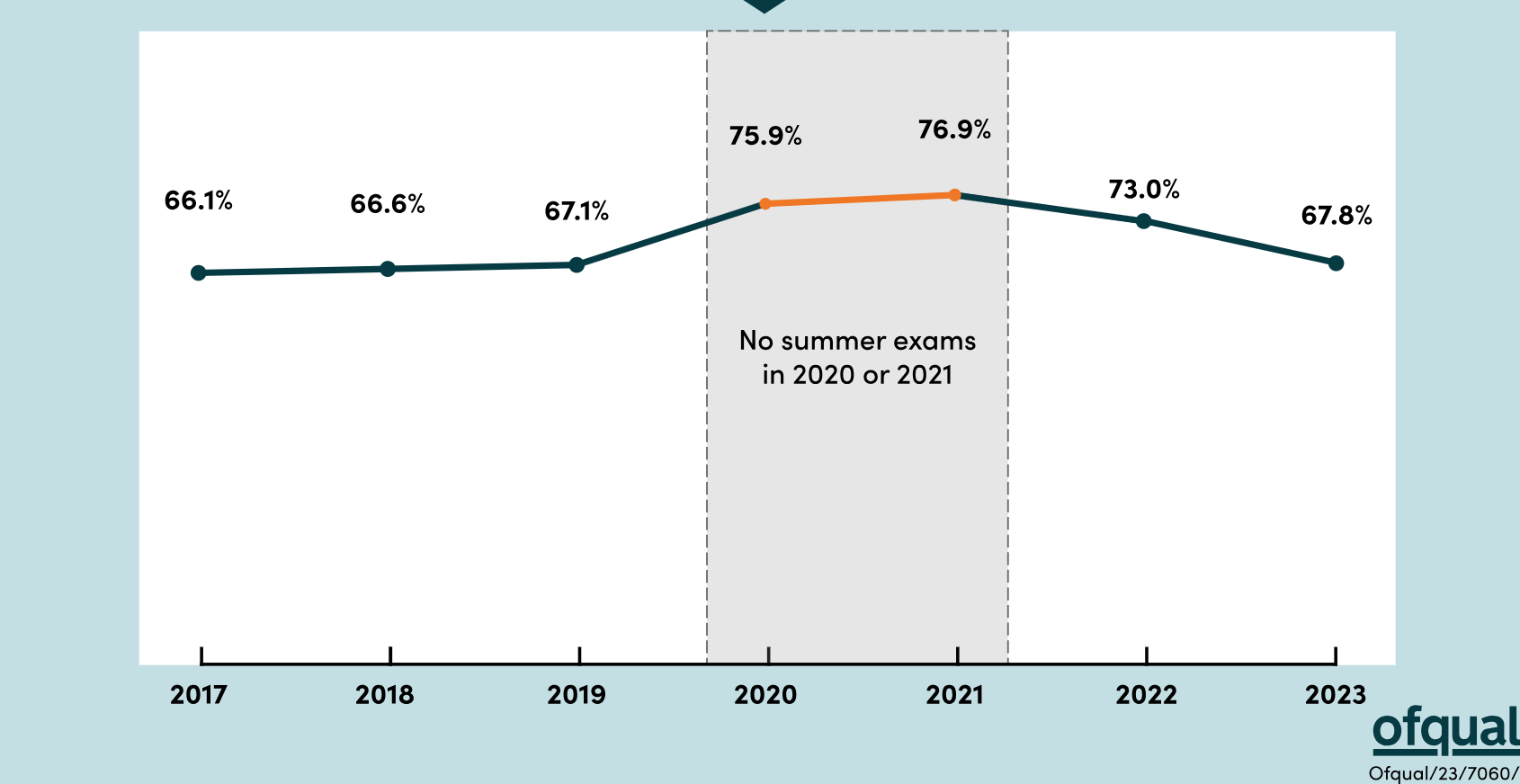Why the Spanish term "machista" does not mean "chauvinistic" or "sexist" or any other English word
This week we have seen in the news the terms machismo and machista. For example, in this article from The Guardian, they quote a sentence said by football player Jenni Hermoso: "I felt vulnerable and the victim of an aggression, an impulsive, machista act, out of place and without any consent on my part." The Guardian decided to add the word "chauvinistic" next to the word machista to help readers understand the meaning of the word. However, it is not quite the same, and there might not be a word in the English language that clearly means what machismo means.
On Sunday the 20th of August, Spain and England played the final match of the FIFA Women's World Cup where Spain won 1 - 0. There was a celebration where Luis Rubiales, then President of the Royal Spanish Football Federation, kissed Spain forward Jenni Hermoso on the mouth. As the player herself explained, that kiss was not consensual, and some people from the sport community, mostly other women, started to demand the resignation of Luis Rubiales. A rumour started to spread on Thursday evening about his possible resignation the following day. However, Rubiales gave a speech against "modern feminism" and "left wing politics" that ended with him shouting a few times: "¡No voy a dimitir!" or "I am not going to resign!"
At the time of me writing this article, this whole episode had not ended. Luis Rubiales was hidden, his mother was on hunger strike inside a church, FIFA had suspended him for 90 days and started an investigation, and football teams around the globe kept appearing on the news to support Jenni Hermoso. The media published articles on a daily basis, and some of them used the Spanish words machismo and machista. Why not call it "chauvinist" or "sexist"? Why was machista the best fit? Was it because he is Spanish, or could it be applied to anyone, regardless of where he was from? In fact, it is all about "connotation" and "denotation".
"Connotation" is what our collective imagination associates with a word, whereas "denotation" is what the word actually means according to the dictionary; and one can influence the other. The word "chauvinist" actually means: "someone who has an unreasonable belief that their own country or race is the best or most important", and also: "believing that or behaving as if women are naturally less important, intelligent, or able than men". It is more like an umbrella term to talk about someone's blind devotion to a system of beliefs. The political meaning was the first one to be used, as it is a term that comes from the French word chauvinisme, meaning: "idealistic devotion to Napoleon", after Nicolas Chauvin, a probably fictional character who served in La Grande Armée of Napoleon Bonaparte and showed excessive loyalty and dedication. It was less than a decade later, during the Bourbon Restoration, that Bonapartism became unpopular and the term chauvinisme was used to ridicule those nationalists.
For lack of a better word, the English language used the word "chauvinist" to talk about "male chauvinism". According to Jane Mansbridge and Katherine Flaster, this started in 1935 when Clifford Odets, an American playwright, screenwriter and actor, published Till the Day I Die, a play set in the Great Depression. There, a young woman says to her boyfriend: "You and your male chauvinism!" However, Odets might have used this term as it was one that women from the US Communist Party used on a normal basis to combat the ways men exercised power over women. The study from Mansbridge and Flaster says that this term was used once every three years in The New York Times from 1934 to 1968, and mostly associated to the women in the US Communist Party, as Odets represented in his play. Then, with the second wave of women's movement, in 1968 one new article appeared using this term, eight appeared the next year, 48 the next and 76 the next. The English language had found a new term to talk about an, until then, unnamed reality: "male chauvinism", or as the definition of modern dictionaries says, just "chauvinism" is enough.
Parallel to the evolution of this term, a new term started to exist just three years before this second feminist wave: "sexism". In 1965, in a college forum in Pennsylvania, Pauline Leet, Director of Special Programs at the college, said: "When you argue that since fewer women write good poetry this justifies their total exclusion, you are taking a position analogous to that of the racist, I might call you, in this case, a sexist. Both the racist and the sexist are acting as if all that has happened had never happened, and both of them are making decisions and coming to conclusions about someone's value by referring to factors which are in both cases irrelevant." Three years later, this term was first printed by the author Caroline Bird, in her speech On Being Born Female. And the rest, it's history.
So, the English language adopted two new terms: "male chauvinism" and "sexism", yet it still uses the term "machismo" to describe attitudes like the one Luis Rubiales showed this week. Why?
During the 1930s and 1940s the term machismo arrived to the United States through Mexico. It wasn't necessarily a bad term, and it came together with another Spanish term: "caballerosidad" or "chivalry" in English. The first one was for the tougher men, the ones who defended their families through the use of force and violence. The second one was for the sweeter men, the ones who brought flowers to their girlfriends and sang songs to their wives. However, both terms could be interchangeable and had multiple layers. The denotation was a lot more precise that the two new English terms that were starting to describe that new reality. Machismo brought a lot of different meanings from chauvinisme or "sexism".
For instance, chauvinisme always had a political connotation and the word "sexism" was ambiguous enough to be used about both male and female sexist behaviour. However, machismo was specific. Also, it didn't talk about someone's specific behaviour, it talked about a whole culture. Just like the loyalty of Nicolas Chauvin was seen as positive before and negative or ridiculous afterwards, the concept of the macho, from the same Latin word the term "masculine" comes from, was seen as positive before and negative or ridiculous afterwards. What "before" and "afterwards" means here, it varies, since it fluctuates throughout history together with the feminist waves.
The concept "caballerosidad" in Spanish didn't vary until very recently, and it only had positive connotations. However, when this concept travelled through Latin America, together with the concept of the gaucho, it transformed into "machismo", a much tougher man part of a patriarchal system that might use violence to defend his system of beliefs. This concept was used to represent the tough Latin man that was seen then in westerns through Mexican actors or in Great Depression plays through Italian characters, and now in pop culture through Latin American reggaeton singers and Spanish football players like Luis Rubiales.
This concept with very specific connotations doesn't have to be used only to describe Latin or Spanish culture or men's behaviour. It can also be used to describe any men's behaviour in a much more specific and clear way than "male chauvinism" or "sexism", two new concepts that were created at the beginning of the XX Century to fill a void that "machismo" had already filled in the Spanish-speaking countries.
This is why articles like the one written by The Guardian talking about Luis Rubiales decided to use the word "machismo" without an English translation, because there is no English word that comes close to all the connotations and layers that the word "machismo" possesses.
This is not the only example of a Spanish word who was adopted by the English language because there wasn't anything else that came close to a faithful translation. Machismo is only one of the examples, together with aficionado, bodega, cafeteria, incognito, patio or vigilante, among a lot others, that we will explore in the future.





Comments
Post a Comment